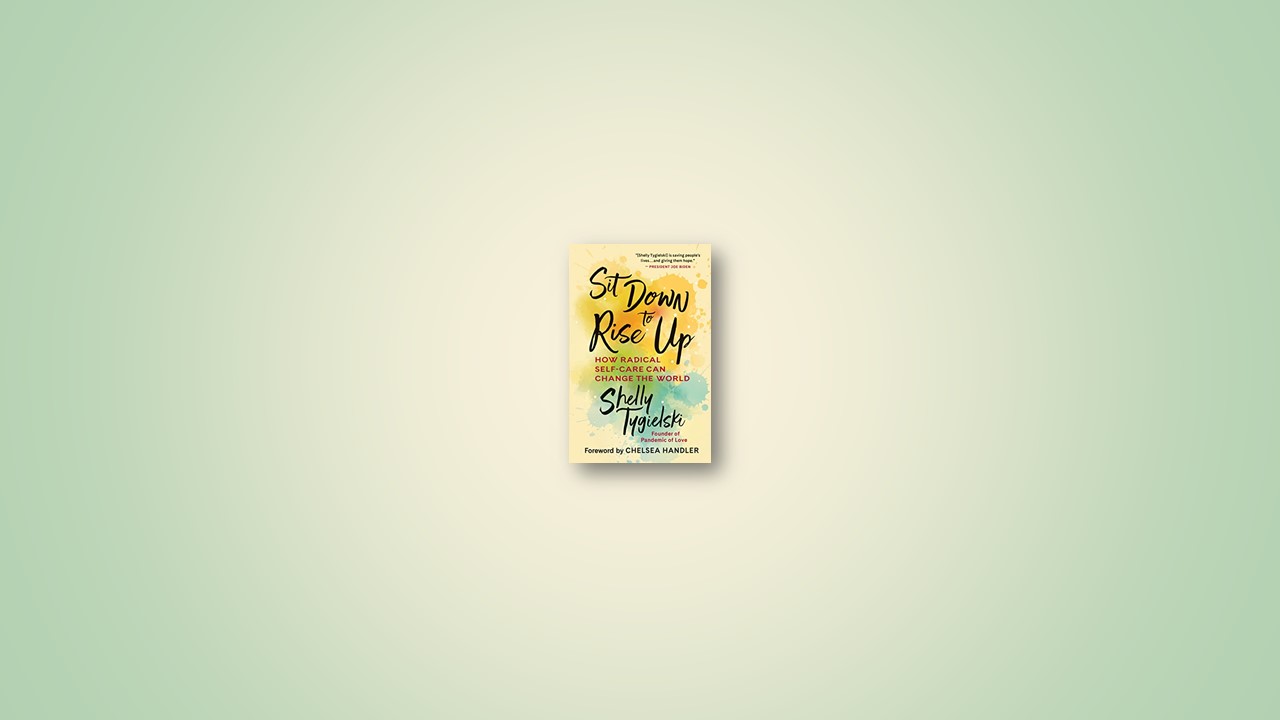Good Is Good Enough
Validation is for parking, not humans. The need for approval doesn’t only kill one’s freedom; it stunts growth. It turns us into our own worst enemies, and our default mode becomes being terrible to ourselves. We compare ourselves to others, and our need for approval becomes insatiable because we cannot stand just being “good.” For some, in order to feel worthy, they have to be the best, feel loved by all, and feel praised. For others, they lack the confidence to grasp our God-given right to free will; they dread the possibility of making the wrong choices, so instead they actively make none. But not choosing is in itself a choice.
The only thing that is guaranteed when we live our lives to please others is that we will eventually disappoint them and that we will always disappoint ourselves. And the only thing that is guaranteed when striving for perfection is that we will fall short of that unrealistic goal. One of the biggest causes for our self-loathing is the need to be perfect — by our own standards or by those of others. Before we can embark on any inner work or experience true growth, we must unshackle ourselves from the narratives that are holding us back. And if we are ever going to show up for ourselves authentically (or for others), we need to have the courage to remind ourselves that good is good enough and that good enough is better than perfect.
Familiarization
After failure, it’s perfectly natural to feel alone and to have a diminished sense of confidence. Self-doubt and insecurity are rampant, and the belief that we will not achieve our goals can become a self-fulfilling prophecy. On the contrary, when we pay attention to and track our small wins and milestones, we experience a boost of confidence and trust that we can keep going and complete the long, arduous road ahead. This can also become a self-fulfilling prophecy — a positive one.
When it comes to maintaining willpower, perception is everything; it can literally make or break our chance for success in reaching our goals or higher purpose. In a 2010 study conducted by Stanford University, researchers found that “people who believe they have an unlimited amount of willpower were able to work longer — without performing worse — than people who believe that they have only limited willpower.” The experiment was conducted with university students who were given a test to take; those individuals who believed that willpower is a limited resource, otherwise known as limited resource theory, actually made more mistakes as the test went on. On the other hand, students who believed that willpower is an unlimited resource maintained their level of accuracy as the test went on. In short: If you believe that you have a limited amount of willpower, you’re right! And if you believe you have an unlimited supply of willpower, you’re right! To a large degree, we weave our own realities because our beliefs influence our actions. Taking action doesn’t guarantee success — mountain climbers don’t always summit — but often the limitations we put on ourselves are what hold us back.
Identity shapes the way we view ourselves, which dictates our responses to emotional triggers and the narratives we use to explain the things we are good at or suck at. Our identities, narratives, and beliefs are most often based on our past experiences.
Sustainable Self-Care
The reality is that authentic self-care is unsexy, hard work — which isn’t an attractive marketing pitch for corporations or brands. The way the term is broadly used today has very little to do with the healthy choices that reflect true self-love and self-compassion. It certainly has nothing to do with the struggle to survive in the face of political and structural oppression. For communities that are under attack by their own government, and for individuals with little access to health care, fresh food, clean water, and safe housing, self-care is a radical act of self-preservation.
Authentic self-care is for everyone. It’s what we all need and deserve, but it can be hard because it’s not a quick fix. Ironically, neither is our own inner journey, or something as lofty as social justice work. Seen this way, wellness is one aspect of social justice, and like social justice, wellness doesn’t happen overnight. This is another reason that self-care has gotten such a bad name: It is much easier to practice “self-care” in easy ways that feel good right now than it is to develop the discipline of a healthy lifestyle that often sucks in the moment but feels really great later. Authentic self-care is not self-indulgence. Self-indulgence is unrestrained gratification of our desires and whims, behaviors meant only to alter our mood and provide a temporary escape from pain and grief.
How can we tell the difference between self-indulgence and true acts of self-care? First, ask if what you’re doing is a temporary quick fix or something that is meant to yield long-term benefits. Sometimes, self-care is best expressed by setting limits in ways that prioritize what’s most important. This takes discipline. Some everyday examples might include watching only one episode of a TV show, not binging a whole season, so you get to bed at a decent hour and experience a full night’s rest. It might be not having a glass of wine with dinner, or only having one; saying no when you don’t want to do something; or waking up early so you have extra time to meditate, journal, or exercise before work.
Kindsight
In 1902, the philosopher William James, who helped establish psychology as a formal discipline, wrote in The Varieties of Religious Experience that there are two kinds of people: the “once-born” and “twice-born.” Once-born people are biologically predisposed to happiness. These individuals have an almost childlike acceptance of the way life is; they aren’t bothered by the intense suffering or evil in the world. Yet should these individuals find themselves in a traumatic event or crisis, they don’t use the opportunity to grow and expand. Instead, they remain in the dark place, stunted by the experience, never wandering too far from the safety of who they thought they were. Conversely, twice-born people use personal adversity and setbacks as opportunities for an inner reckoning, an opportunity to become the better (or best) version of themselves. These individuals look for purpose and meaning in these dark moments. The darkness becomes an invitation to live more consciously and to seek out the light that remains, even if it is hidden from plain view.
James posits that people who are twice-born are happier because, when they come out on the other side of the crisis, they have made more sense of the universe (or at least of their own lives), and they have a much greater appreciation for their life and the world. He writes that “the process is one of redemption, not of mere reversion to natural health, and the sufferer, when saved, is saved by what seems to him a second birth, a deeper kind of conscious being than he could enjoy before.” Confucius put this another way: “We all have two lives; the second one begins when we realize we only have one.”
Circles of Influence and the Ripple Effect
The Dalai Lama once said, “Just as ripples spread out when a single pebble is dropped into water, the actions of individuals can have far-reaching effects.” After showing up, remember that having an impact does not require a grand gesture. Even small actions can have a positive impact. The only thing required is momentum, built on consistent, small actions that shift the status quo. Sometimes, you may see and feel the results of the ripple right away; sometimes the ripple effect may not be felt for weeks, months, or longer; sometimes you may never know the effect of your actions. Drop the pebble, anyway.
Think about the big bang — yes, the big bang. Consider the universe, which was created from a single burst of energy — planets, galaxies, life in exponential forms, and the creation of you. It all started with one, singular event. A ripple in the fabric of space, something that emanated from seemingly nothing. We each have this piece of “godliness” in us — we are each divine creators in our own right. We can create something out of nothing, and perhaps even more importantly, we can continue to cocreate as our actions ripple out. Rest assured, the ripples will continue to spread far and wide, but if you choose to deliberately ride or follow them, they will lead you to places beyond your imagination.
If Only for Today
When we are young, adults always ask us, “What do you want to be when you grow up?” That is a goal-oriented question, and it leads to a goal-oriented response. It makes what we are seem most important — whether that’s a cowboy, princess, doctor, or lawyer — and I think this question should be retired. I think it leads to the stifled, self-defeating fears that keep us, as adults, from showing up. Instead, we should ask ourselves: Who do we want to be? That is, what kind of person? Someone who is compassionate, helpful, loving? This question elicits a response that focuses on our intentions. Rather than focus on what we might achieve in any material way, or what title or profession we might pursue, we consider how we want to show up every single day of our lives in everything we do. Living our life centered around intentions informs every area of our life.
It can be easy to confuse intentions with goals, since sometimes we use the same language for both. For instance, someone could say, “My intention is to be happy,” but this turns happiness into a goal or something to achieve. As we all know, wanting to be happy does not by itself make us happier. If anything, this can leave us even more frustrated, since many days we may not achieve or feel happiness, no matter how hard we try. However, instead, if we say, “My intention is to act with kindness,” then what matters is how we act, our effort, not the result. Further, we always have the power to choose how to act, and we can be kind in any circumstance, even in the most mundane aspects of our lives. And if we do this each day, little by little, that intention to be kind will become part of the fabric of who we are.


